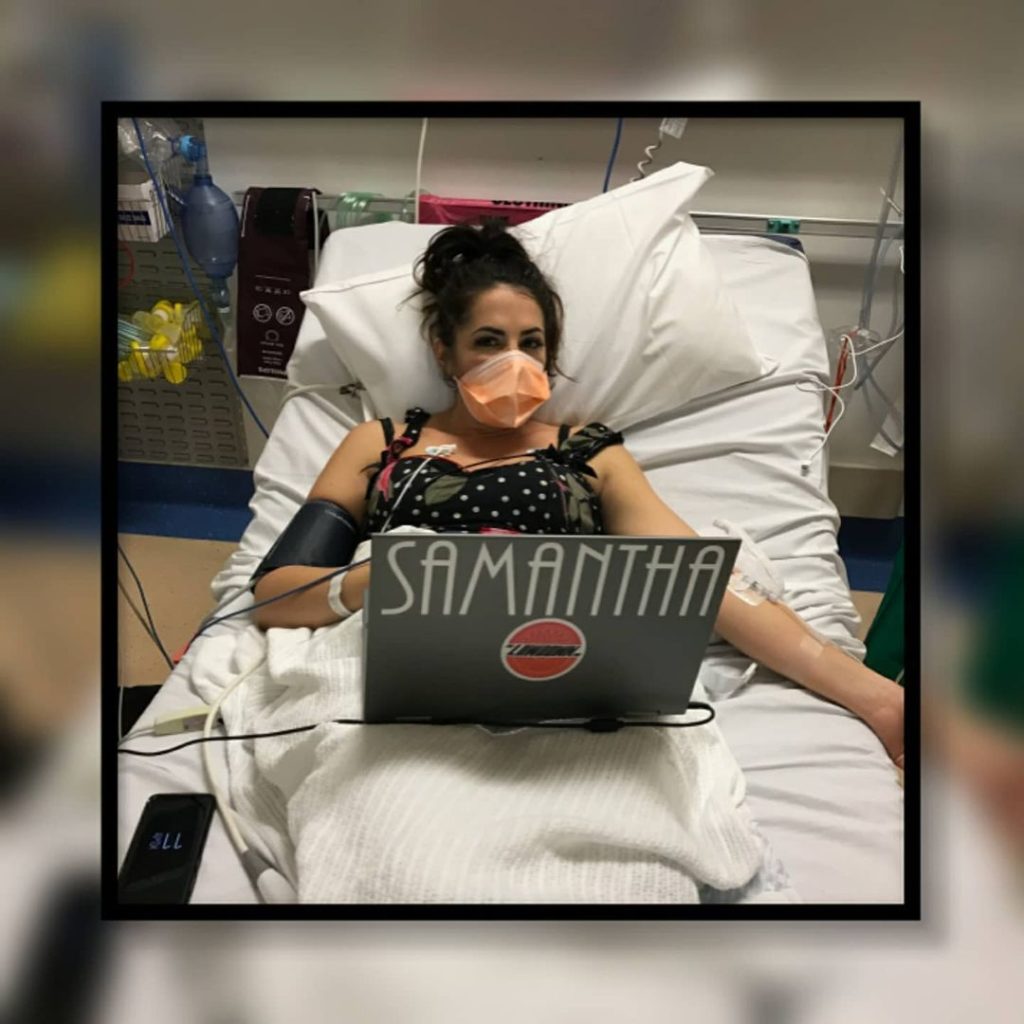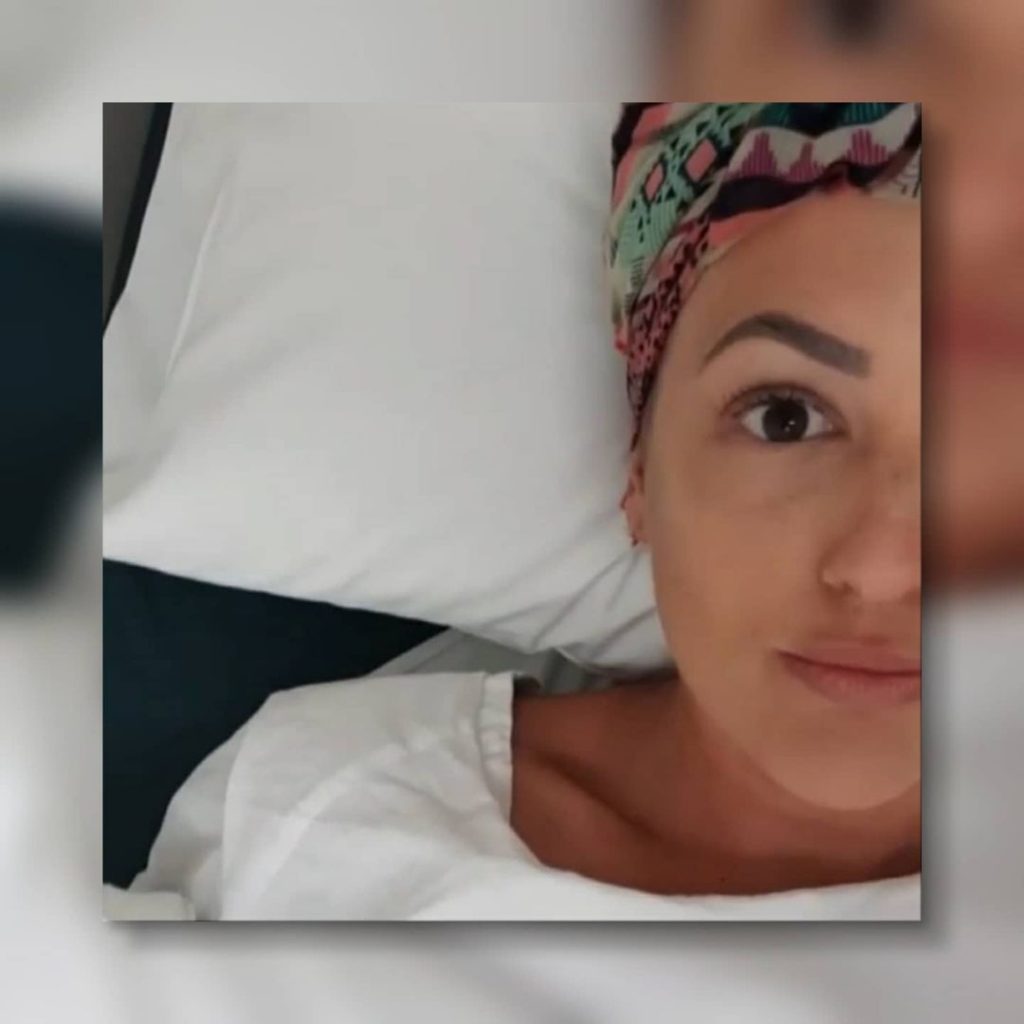My blood cancer experience: I’ve struggled with other people’s positivity
After being diagnosed with lymphoma, Sam wasn’t prepared for what undergoing treatment would do to her sense of self and her mental health, nor how other people would relate to her about her diagnosis.
This story is a first-person account, contributed by a member of our wonderful community – all words are their own.

I was in denial for a long time. A very long time. When I was diagnosed with a blood cancer called lymphoma, I was told I got the ‘good cancer’. I sobbed for all of ten minutes, sent out a bulk text to not have to talk to anyone and got on with my day. I buried it by telling myself ‘it’s just six months of treatment, life will be back to normal after that’ and I actually believed it.
Five months later, I walked into my sister’s house to set up her baby shower and my world crashed. Under my wig I had next to no hair, my confidence was rock bottom and I refused photos. I was suffering from so many side-effects you couldn’t see, with more chemo scheduled for the next day. I tried to put on the expected social smile, but I simply didn’t know myself anymore. It felt awkward. Who was this girl crying in the bathroom? I used to love seeing my friends but now I couldn’t avoid them, and I was dreading the familiar faces. I wasn’t the same and it scared me.
As people started arriving, my anxiety got worse and worse.
I hated the question ‘how are you?’
I was never completely honest – if you really wanted to know you wouldn’t be asking me right here, right now. So I’d politely respond, ‘good thanks, you?’ just to be probed further with ‘and how’s your health?’ Oh I’m sorry, did I not make it obvious that is not what I want to talk about?
I hated the comments on how real my wig looked, when all I wanted was my hair. I had to pay two grand for this itchy hot head gear, but gee thanks I love it too.
I hated my friends complaining about babies and lack of sleep. It was gut wrenching when I wished that that’s what kept me up at night. Will I ever get that chance?
I hated the small talk and complaints about nothing. I’d feel the lump growing in my throat and zone out to avoid crying. ‘Oh, you had a hard day?’
I felt so out of place, I just couldn’t relate to anyone.
I wasn’t ready to be social, I hated every minute. Every look and every conversation. I was bitter at the world because all I ever heard was how strong I was – ‘I don’t know how you do it’ and ‘You’ve got this’. That’s great and all but I didn’t really have a choice here and if I did…it wouldn’t be this. What you call ‘strength’ I call ‘lots of sleep’ and there are so many other things I’d rather be doing.
So I left, snuck out. Drove myself home and finally broke down. I was done with being strong, being fake happy. I was a cancer patient; I was miserable, and I was allowed to feel that way. Cancer sucks!
The constant positivity made me feel like I didn’t have the right to be sad about it.

I put on a happy face at times when I just wanted to scream. I didn’t grieve because I was one of the ‘lucky ones’ and should just be happy because I get to live; just put it to the side and enjoy the day.
I don’t mean to sound ungrateful; I am so glad and do appreciate every single day I have, but the constant positivity is positively toxic. The reality is: cancer sucks! All cancers suck. It is so very unfair and yes, such is life, but let’s talk about that too.
Let’s not make cancer patients feel bad, for feeling bad.
Everyone’s experience with blood cancer is different. If you’re feeling overwhelmed by a blood cancer diagnosis, speak to your treating team or connect with our Blood Cancer Support Coordinators, call the Leukaemia Foundation during office hours on 1800 620 420, or Lifeline Australia provides 24-hour crisis support on 13 11 14.
Last updated on February 23rd, 2022
Developed by the Leukaemia Foundation in consultation with people living with a blood cancer, Leukaemia Foundation support staff, haematology nursing staff and/or Australian clinical haematologists. This content is provided for information purposes only and we urge you to always seek advice from a registered health care professional for diagnosis, treatment and answers to your medical questions, including the suitability of a particular therapy, service, product or treatment in your circumstances. The Leukaemia Foundation shall not bear any liability for any person relying on the materials contained on this website.